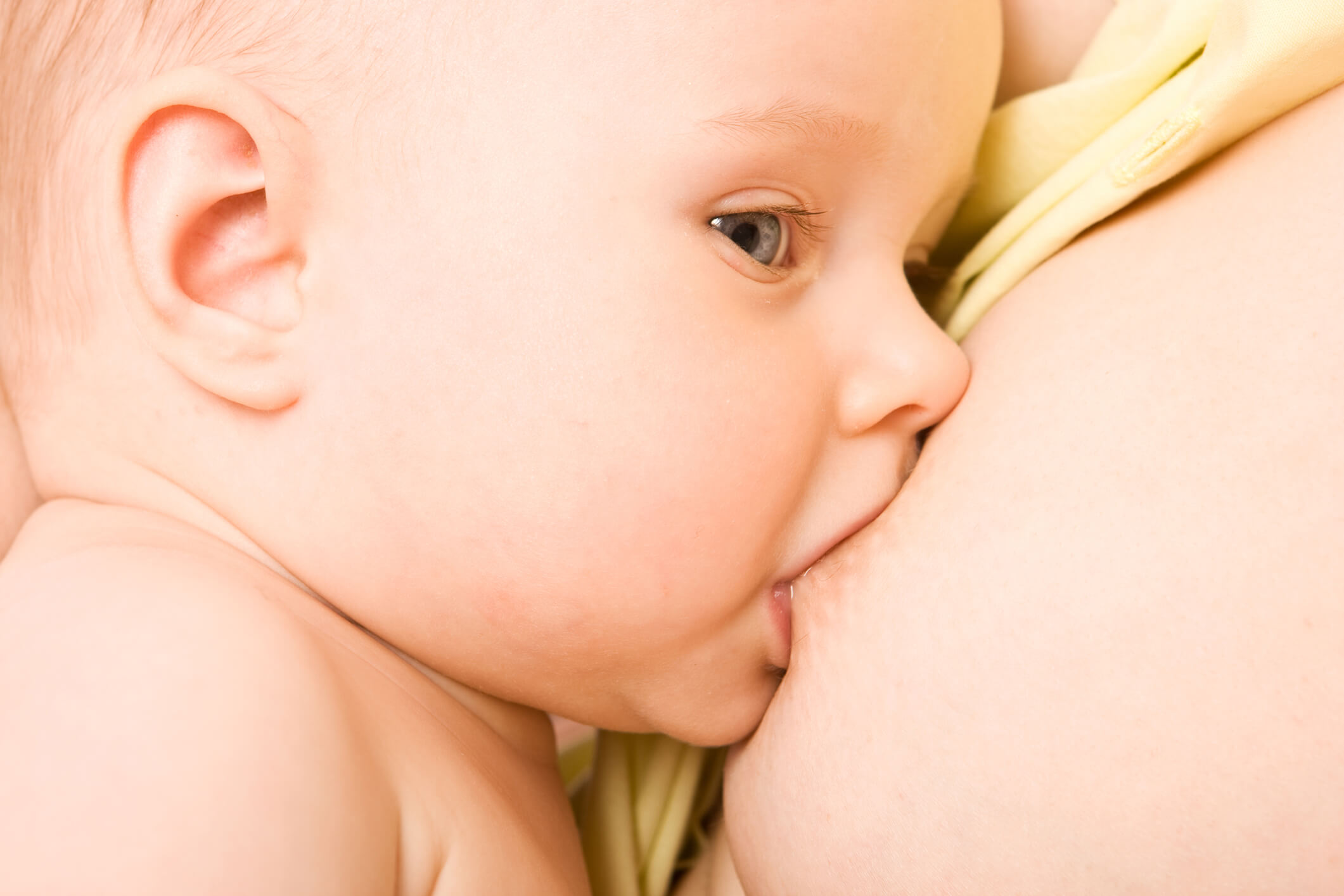Do Probiotics Pass Through Breast Milk?

As an affiliate, we may earn a commission from qualifying purchases. We get commissions for purchases made through links on this website from Amazon and other third parties.
The short answer is yes, probiotics pass through breast milk to your newborn and can provide a significant advantage to their health at the start of their life.
In fact, they are an excellent way to promote good health in both mother and baby.
Breast milk contains probiotics, which can help a baby’s health and well-being in a variety of ways.
This article will discuss how probiotic supplements can benefit you during your pregnancy and after childbirth, including how they interact with breast milk or formula for your baby’s gut microbiome development.
Probiotics within your diet
Breastfeeding mothers have a wide range of options to help them with their diet as well as the health of their babies. It’s important that breastfeeding moms consider all available options when it comes to ensuring the best nutrition for themselves and their infants.
With so many products on the market today, it can be hard to know which ones actually work and which ones don’t do anything at all.
A woman’s diet can affect her breast milk. This is true for all mammals, including humans. But what about probiotics? Can they pass through your breast milk and potentially change the balance of bacteria in a baby’s gut? The answer to this question is controversial.
It depends on the type of probiotic you take, how often you take it, and when during lactation (i.e., pregnancy or after childbirth) you start taking it.
Some types of probiotics may be safe for pregnant women to consume but not breastfeeding mothers; others are safe for anyone who has ingested them at any time during their life cycle, including while pregnant or breastfeeding.
The health and safety of your newborn are, without a doubt, the most essential thing to most new mothers.
As a result, many mothers are concerned about the threat of hazardous bacteria and pathogens that might cause sickness and other difficulties. However, the need for healthy bacteria in infancy is sometimes ignored, which is where probiotics come in.
Probiotic strains
Breast milk contains around 700 distinct species of bacteria, including typical probiotic strains like Lactobacillus, Streptococcus, Staphylococcus, Enterococcus, and Bifidobacterium, according to research.
Breast milk’s microbial variety plays an important role in the development of a baby’s immune system, helping to guard against infection and establish a healthy gut microbiome.
Many of the same bacteria types can be found on the skin’s surface, providing still another reason to breastfeed rather than bottle feed.

Best probiotic strains for breastfeeding
There are many different probiotic strains available, and each strain has its own unique benefits. Here are some of the best probiotic strains for infants:
- Bifidobacterium lactis HN019 : This strain is found in breast milk and is one of the most studied probiotic strains
- Lactobacillus rhamnosus GG (often simply called “LGG”): This is one of the only probiotics proven to colonize the gut mucosa. This makes it very effective at fighting off invading microbes that attempt to occupy your baby’s intestinal tract. It’s also one of the best probiotic strains for infants.
- Lactobacillus reuteri : This strain has been shown to help with colic in babies, which is especially beneficial if your infant experiences digestive upset when they eat. Research shows that supplementation with L. reuteri significantly reduces the duration of crying episodes in breastfed infants compared to placebo.
When choosing a probiotic infant formula, it’s important to select one that contains multiple strains of probiotics. This ensures that your baby will receive the maximum benefit from the probiotics.
Look for a formula that contains Bifidobacterium lactis HN019, Lactobacillus rhamnosus GG, and Lactobacillus reuteri.
These strains have all been shown to be beneficial for infants, and together they provide a powerful probiotic punch.
Probiotics within breast milk
Breast milk is a complex and intricate mixture of nutrients, antibodies, and immune cells. It protects infants from infections and poisons while building their gut microbiome to prepare them for their lifelong relationship with food.
But there’s one aspect of breast milk that we don’t talk about nearly enough: probiotics. Probiotics are the “good” bacteria that help prevent diarrhea in children under two years old, among other benefits.
And now new research has shown that they may also have an effect on the child’s microbiome.
This study found that when babies eat natural yogurt containing probiotic bacteria during the first year of life, it changes the composition of microbes living in their guts so they become more like those found in naturally-fed infants’ microbiomes at six months old.
The study’s authors say that this shift could mean that these bacteria might help protect against future allergies and asthma.
They caution, however, that much more research is needed to confirm this theory. But the possibility that probiotics might help prevent these diseases is very exciting.
It’s also interesting to note that the benefits of probiotics seem to be stronger when introduced during the first six months. This is why it’s so important to breastfeed your baby for at least that long, if not longer.
Difficulties breastfeeding
There are many factors that can contribute to difficulty with breastfeeding. Breastfeeding is natural and beneficial for both mother and baby; however, some mothers experience difficulties in nursing their children.
There are a number of reasons why this may happen including:
- improper latch-on technique
- tongue-tie (ankyloglossia)
- inverted nipples (where the nipple points inward rather than outward)
- insufficient milk supply
Breastfeeding should never be painful; if it is, you should speak with your doctor as soon as possible because the pain could indicate an underlying issue such as sore nipples from poor latching or infection.
If you’re experiencing discomfort but not pain while breastfeeding, try these remedies: massage your breasts before each feeding session to soften the areola and coax the milk ducts to let down; use a warm compress on your breasts before nursing, and drink plenty of fluids (especially water) to ensure an adequate milk supply.
If you’re still having trouble breastfeeding after trying these remedies, it may be time to consider using a lactation consultant. A lactation consultant can help you troubleshoot any problems you’re having and give you tips and tricks for breastfeeding success.
If you’re not able to breastfeed your child, or if you choose to use formula supplementation, there are a number of high-quality, organic infant formulas available on the market.
However, if you want to give your child the best possible start in life, it’s important to choose a probiotic infant formula.
In conclusion
Probiotics pass through breast milk
The benefits of taking probiotics are well known, but a lot of people wonder if they will pass through breast milk and affect their baby.
As more studies show the importance of gut health to overall physical and mental wellbeing, many women are looking for ways to support it naturally.
So, if you’re experiencing difficulties with breastfeeding, or if you just want to give your child the best possible start in life, consider using a probiotic infant formula that contains Bifidobacterium lactis HN019, Lactobacillus rhamnosus GG, and Lactobacillus reuteri.
A quick reminder ..
Probiotics.tips aim to provide the most up-to-date information, help, and advice for YOU to make informed decisions. If you are unsure or uncertain and require more clarity, please reach out to us and we will gladly come back and advise you as best we can.
The best means to reach us is via email at info@probiotics.tips or fill out the form on our Contact Us page – click here.
Probiotics.tips
About Us
Our goal is to empower you with concise probiotic guidance for a healthier gut. With expert advice, we provide the knowledge to improve your well-being and navigate the world of probiotics efficiently, ensuring you achieve optimal gut health.
- Can You Take Probiotics While Water Fasting?
- Does Fasting Help Microbiome Diversity and Functionality?
- Does Fasting Help Your Bowels
- Does Fasting Help Probiotics? Understanding Gut Health Benefits
- Does Fasting Help the Gut: Understanding the Impact on Digestive Health
Disclaimer
As an affiliate, we may earn a commission from qualifying purchases. We get commissions for purchases made through links on this website from Amazon and other third parties.
Check these out on Amazon








